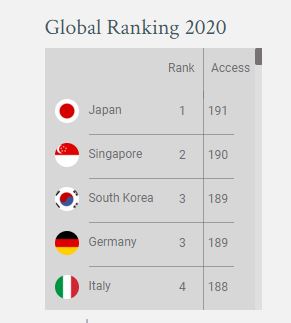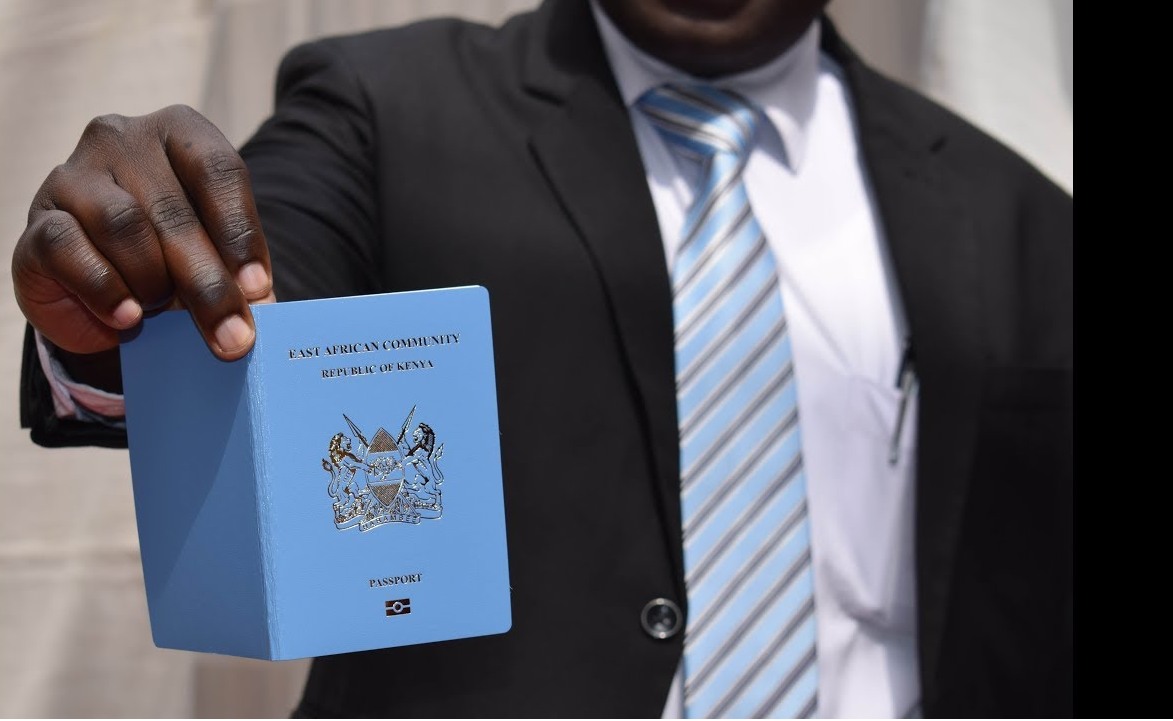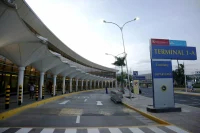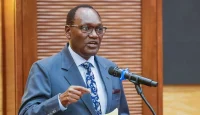With global travel almost at a standstill, the latest results of the Henley Passport Index — which is based on exclusive data from the International Air Transport Association (IATA) — offer disturbing insight into the indiscriminate havoc caused by the COVID-19 pandemic. Since its inception in 2006, the index has provided annual ranking of global passport strength.
Travel freedom has increased dramatically over the period in 2006, a citizen could travel to 58 destinations on average without a visa from the host nation; 14 years later, this number has almost doubled to 107.
Strong passports
The first ranking of the new decade published in January this year showed that overall, people are more globally mobile, with the top-ranking passport – Japan – offering its holders access to a record-breaking 191 destinations without requiring a visa in advance.
Just three months later, with Covid-19 ravaging, the picture looks very different indeed.
Meanwhile, Kenya retains its position at 72nd on the latest index with visa-free/visa-on-arrival access to 72 destinations worldwide. Henley & Partners Head of South, East and Central Africa, Amanda Smit says although it is reassuring to see the Kenyan passport holding firmly onto its position, the impact of the COVID-19 virus on mobility, local markets and health security could impact on the migration of skilled labour to other destinations in the post-pandemic era.
“Despite the slowdown caused by the COVID-19 outbreak, Kenya and other African countries need to stay on course with visa waiver policies,” Ms Smit said. “Visa waivers increase tourism, business travel, bilateral economic transactions and remain essential for inter-continental economic development. The pandemic will not last indefinitely and economies will need to be rebuilt after the pandemic has subsided.”
Japan’s passport continues to hold the top spot on the Henley Passport Index as the world enters the second quarter of 2020, but the reality is that current stringent travel restrictions mean that most non-essential travel for Japanese nationals is heavily curtailed.
Dr. Christian H. Kaelin, Chairman of Henley & Partners and the inventor of the passport index concept, points out that in an unprecedented global health emergency such as this, relative passport strength becomes temporarily meaningless. “This is, of course, something that citizens of countries with weak passports in the lower ranks of the index are all too familiar with. As public health concerns and security rightfully take precedence over all else now, even within the otherwise borderless EU, this is an opportunity to reflect on what freedom of movement and citizenship essentially mean for those of us who have perhaps taken them for granted in the past.”

Global mobility after COVID-19
Bestselling author and the Founder and Managing Partner of FutureMap, Dr. Parag Khanna, says the combined effect of the COVID-19 pandemic on public health, the global economy, and social behaviour could lead to much deeper shifts in human geography and future distribution around the world.
“This may seem ironic given today’s widespread border closures and standstill in global transportation, but as the curtain lifts, people will seek to move from poorly governed and ill-prepared ‘red zones’ to ‘green zones’ or places with better medical care. Alternatively, people may relocate to places where involuntary quarantine, whenever it strikes next, is less torturous.”
In the US, both domestic and international migration were surging before the pandemic, with Gen-Xers and millennials shifting to cheaper, second-tier cities in the Sun Belt or abroad to Latin America and Asia in search of an affordable life. Once quarantines lift and airline prices stand at rock bottom, expect more people across the globe to gather their belongings and buy one-way tickets to countries affordable enough to start fresh, he says.
This is supported by emerging research and analysis commissioned by Henley & Partners, which suggests that despite freedom of movement currently being restricted as a temporary measure, there is a risk that this will negatively affect international mobility in the long run.
READ >> A Man on a Wheelchair Says Walking is Over-rated
Political science researchers Uğur Altundal and Ömer Zarpli of Syracuse University and the University of Pittsburgh, respectively, note that public health concerns have historically been used to justify restricting mobility, but governments usually adopt travel restrictions temporarily, in response to short-term health needs.
Until now, health security has not been a significant determinant or requirement when negotiating visa waivers, but Altundal and Zarpli warn that “increasing public health concerns due to the outbreak of COVID-19 may change this and the quality and level of health security of a country could be a significant consideration for visa waivers in future”. The unprecedented and overwhelming focus on health security and pandemic preparedness we now see may change the face of global mobility forever.
Hedge against volatility
“We believe that in the post COVID-19 environment, investment migration will take on a dramatically enhanced importance for both individual investors and sovereign states,” Ms Smit says, commenting on the ever-expanding growth and popularity of the investment migration industry. “Acquiring alternative residence or citizenship will act as a hedge against the significant macro-economic volatility that is predicted, creating even more sovereign and societal value across the world.”













Leave a comment